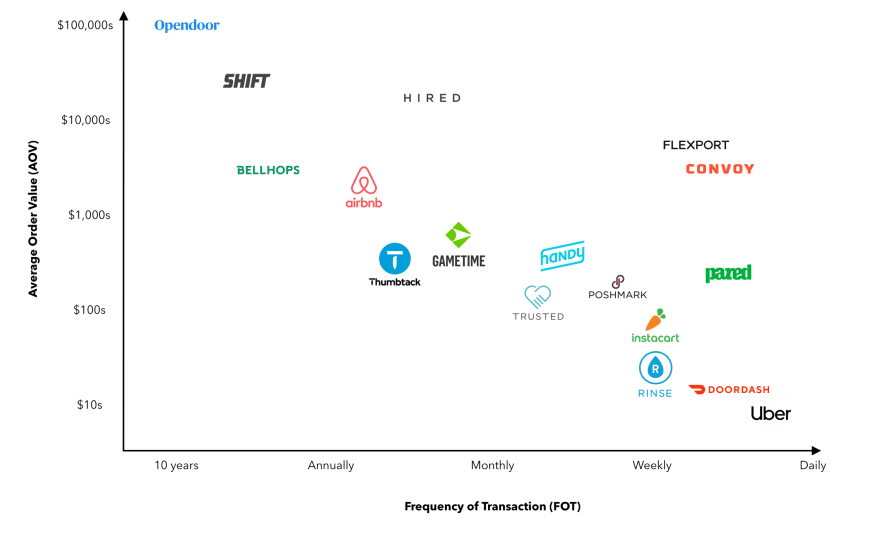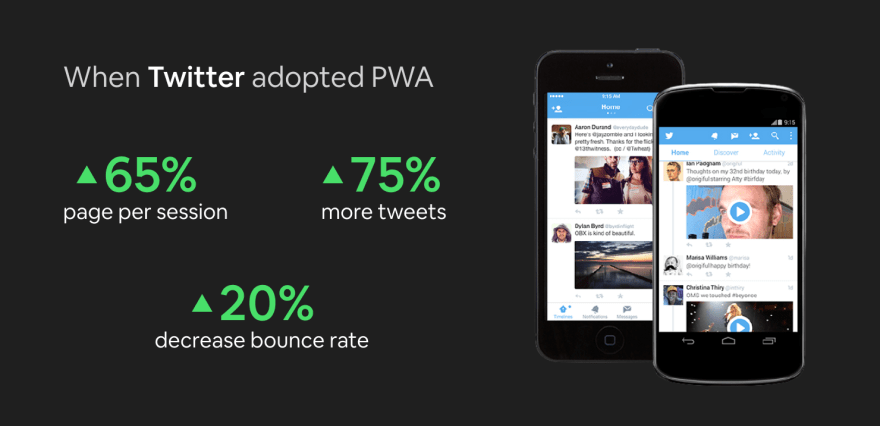Choosing well the platform on which to build your project is not a minor issue and has a clear impact on the business. Making the decision to start with a web or an app is still a real headache for many startups and companies that start their digital project.
In Reboot we see many of these cases often and, furthermore, we have had to face these questions several times in the past: What is best for my project: starting with a web or an app?
Today we want to share with you some key points that will help you to reflect and make the right decision in your case.
Business model
As we have already discussed in previous articles, the business largely determines the product.
We must understand how our project is going to generate income and what is the model behind it. For example, if it is a model based on a high recurrence and repetition by the user, surely we are interested in exploring the creation of an app.
This is clearly the case for mobile games that need to create that habit in the player through instant access and reward. From here, they can monetize through advertising or in-app purchases, but in both cases it is necessary to create that daily recurrence in the player that only mobile apps can do.
However, games are not the only products with a business model based on high recurrence. Certain marketplaces such as Uber (ride-hailing) or Deliveroo (food delivery) also adopted mobile applications from the first moment due to the high recurrence of their model.
On the other hand, if recurrence is not a key factor in your business model, you can surely start with a website, many ecommerce are in this category.
In summary:
- If your business model aspires to a recurrence of less than 1 week, a mobile application makes a lot of sense
- If your business model has a recurrence of more than 1 week, a website is probably the best option
Distribution
Once we are clear about how we make money and what type of model our business is defined, we have to talk about distribution. Distribution determines the channels through which we will deliver our product to the user or customer.
Building an app or a website will determine what channels we have available to distribute our product, so it is very important to detect that we are not ruling out a channel that may be vital for our business.
Friction
Firstly, we must know that generating a download for our app will normally be more difficult - and therefore more expensive - than generating a visit to our website. This is simply due to the friction that one process requires over another. To get a download we need the user to enter the store, have enough space on their device and pass their evaluation of whether it is worth installing a new app.
Instead, it is easier to direct traffic to a website simply through its link. The friction is much lower and the cognitive effort required from the user is also less.
Agility
The agility and speed of distribution is also an important point to take into account. Currently, the applications are distributed through the two main stores: App Store for iOS and Google Play for Android. This means that any change we make not only implies generating a new version of our app, but it must pass the filter of the two platforms before it is available to users.
This translates into time. Time to generate new versions and approval time by stores, which varies from the App Store or Google Play but is usually between 1 and 3 business days for each new update.
If you need agility to be able to make quick changes, then you should definitely build a website where you can control the speed of distribution and be able to perform hot-fixes in a matter of minutes and not days.
Channels
What will be the main distribution channels? Let's see some of them and their incidence if it is a web or app.
- SEO. If search engine optimization is one of the main channels then we need to build our product on the web. It is true that ASO exists for app store optimization, but it is much less actionable and predictable than SEO.
- SEM. In the same way, if SEM is important for the distribution of your product, it is best to start on the web. As with SEO, there is also the corresponding version of the SEM for app stores where we can bid on certain keywords, but it does not have the same depth or scope as the browser version.
- Performance Marketing. Ads work very well whether our product is web or app and, although the installation cost is higher than the simple click, it should not be a reason to discard any of both.
- B2B / Partnerships. If the main channel is direct sales or partnerships, we should assess other aspects to finally opt for the web or app.
Target audience
The type of user we are targeting is also a factor to take into account. How old are they? What are their habits? In what kind of environment do they operate and where does my product fit? For example, they may work in a desktop environment, but at home and for leisure, their use is mainly mobile. Is our product focused on work or leisure hours?
Obtaining a complete X-ray of our user will allow us to determine if an app or a web fits better with their habits and customs. We must not confuse customer with user, many times these two facets occur in the same person but it does not always have to be this way. For example, the customer of our product may be the company but the user its workers.
Resources
The resources we have for our project is also a factor that will determine our final decision. Generally, the cost of developing an app is usually higher than a website. There are so many reasons for that, one of them is that there are many more tools, solutions and frameworks on the web to do certain things that prevent us from starting from scratch.
Of course, both an app and a website are much more than the user can see and there are common parts that have to be developed equally in both cases, such as the backend, the database or the administration panel if required.
Speaking of costs, we also have to take into account the fee we have to pay to app stores when we sell digital assets. In the case of Apple it is 15% if we invoice less than 1 million per year and 30% in the case of the Play Store.
Fortunately, the cost factor is less and less relevant when we decide between web or app thanks to frameworks such as React Native or Flutter that are managing to close the circle between web and mobile development.
User experience
Last but not least, the user experience is also essential and this will be defined by the type of product we are building.
Let's start with an easy case: games. If your product is a game you need an app. There's no other way. You need to offer an immediate, responsive, latency-free experience that can make use of the device's resources.
Does every business need this kind of native experience? Absolutely not. Nowadays you can create great products on the web that can even have access to certain native functions of the system such as geolocation or the camera. For this reason, it is very important to plan a Mobile First experience from the beginning, so that not only the web is perfectly usable from mobile devices, but also that its experience is as close as possible to that of a native app.
In fact, in this direction we find the PWAs (Progressive Web Apps) that companies like Aliexpress or Twitter are already using. PWAs are halfway between web pages and mobile applications and, thanks to the use of Service Workers and other technologies, they achieve an experience closer to that of a mobile app.
It is even possible to install a PWA as you would do with an app and perform tasks that were previously only reserved for native apps, such as receiving notifications or working without an Internet connection.
Conclusions
Ultimately, the choice to build our product on the web or in an app is essential as it has a direct impact on our business model, the way in which we will attract users, how much these users will cost us, how many resources we should have or what kind of experiences we can offer.
At Reboot we can help you with this and many other questions that usually arise before starting the development of a digital product, defining together a first version that validates business hypotheses but also offers an appropriate user experience.







Top comments (1)
Just build a PWA